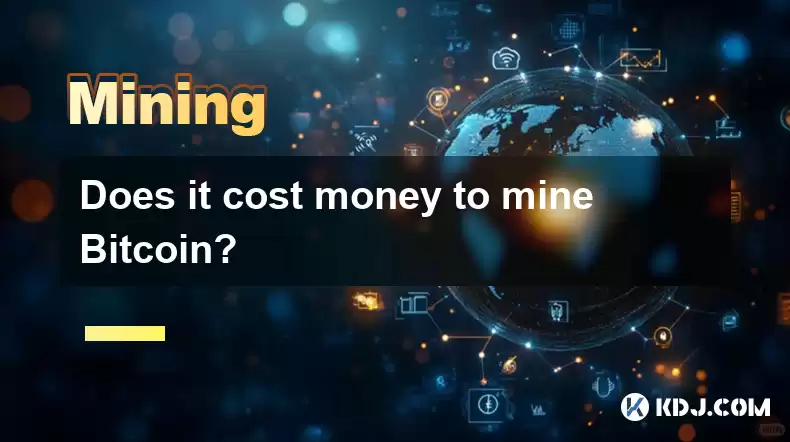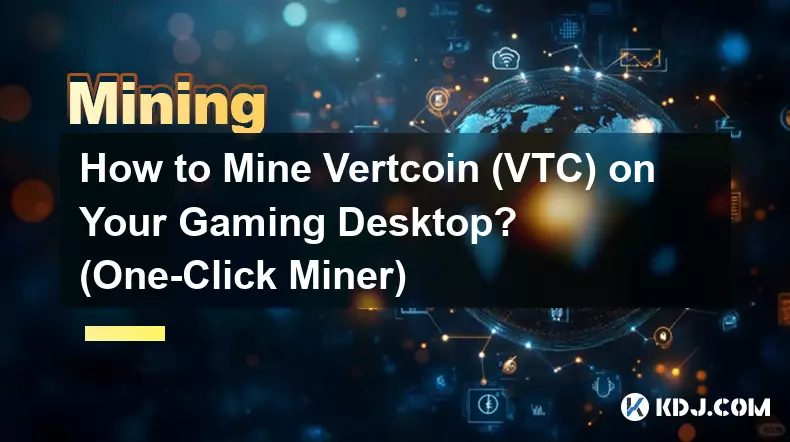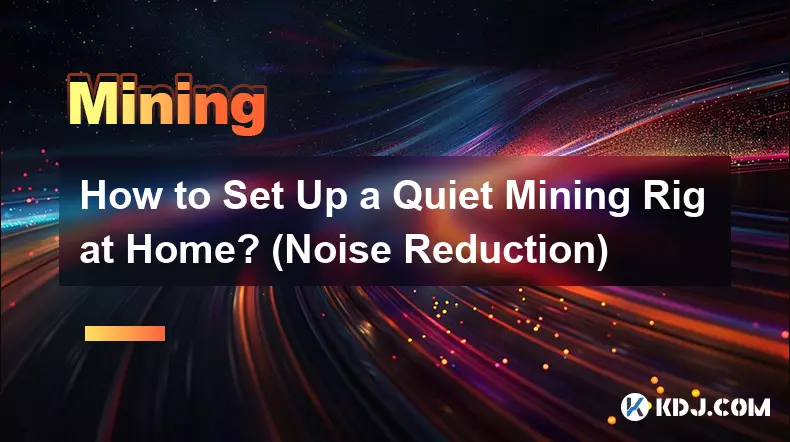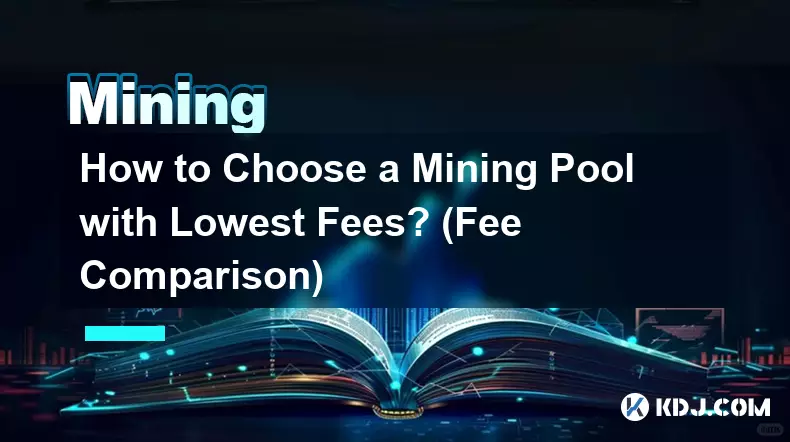-
 bitcoin
bitcoin $87959.907984 USD
1.34% -
 ethereum
ethereum $2920.497338 USD
3.04% -
 tether
tether $0.999775 USD
0.00% -
 xrp
xrp $2.237324 USD
8.12% -
 bnb
bnb $860.243768 USD
0.90% -
 solana
solana $138.089498 USD
5.43% -
 usd-coin
usd-coin $0.999807 USD
0.01% -
 tron
tron $0.272801 USD
-1.53% -
 dogecoin
dogecoin $0.150904 USD
2.96% -
 cardano
cardano $0.421635 USD
1.97% -
 hyperliquid
hyperliquid $32.152445 USD
2.23% -
 bitcoin-cash
bitcoin-cash $533.301069 USD
-1.94% -
 chainlink
chainlink $12.953417 USD
2.68% -
 unus-sed-leo
unus-sed-leo $9.535951 USD
0.73% -
 zcash
zcash $521.483386 USD
-2.87%
Does it cost money to mine Bitcoin?
To participate in Bitcoin mining, individuals require specialized ASIC miners, which are highly efficient devices designed specifically for this purpose.
Jan 19, 2025 at 07:12 am

Mining Bitcoin: A Comprehensive Guide for Beginners
IntroductionBitcoin mining is the process of verifying and adding new transactions to the Bitcoin blockchain. It is a decentralized process, meaning that it is not controlled by any single entity. Instead, it is carried out by a network of computers spread all over the world.
How Does Bitcoin Mining Work?Bitcoin mining involves solving complex mathematical problems. The first computer to solve a problem gets to add a new block of transactions to the blockchain. This process is called "finding a block."
The difficulty of the mathematical problems is constantly adjusted to ensure that new blocks are found at a consistent rate. This means that as more miners join the network, the difficulty of the problems increases.
What Equipment Do I Need to Mine Bitcoin?To mine Bitcoin, you will need specialized hardware called an ASIC (Application-Specific Integrated Circuit) miner. ASIC miners are designed specifically for mining Bitcoin and are much more efficient than general-purpose computers.
Is Bitcoin Mining Profitable?Whether or not Bitcoin mining is profitable depends on a number of factors, including:
- The price of Bitcoin
- The cost of electricity
- The efficiency of your mining hardware
- The difficulty of the mining network
In general, Bitcoin mining is only profitable for large-scale operations with access to cheap electricity. However, it is still possible for individuals to mine Bitcoin profitably on a small scale, especially if they are willing to invest in efficient hardware.
How to Get Started with Bitcoin MiningIf you are interested in getting started with Bitcoin mining, here are a few steps you can follow:
- Purchase an ASIC miner. There are a number of different ASIC miners available on the market. Do some research to find a miner that fits your budget and needs.
- Set up your miner. Once you have purchased a miner, you will need to set it up. This typically involves connecting the miner to a power source and an internet connection.
- Join a mining pool. A mining pool is a group of miners who combine their resources to increase their chances of finding a block. Joining a mining pool can significantly increase your profitability.
- Start mining. Once you have joined a mining pool, you can start mining Bitcoin. The mining pool will provide you with instructions on how to configure your miner.
There are a few risks associated with Bitcoin mining, including:
- Hardware failure. ASIC miners are complex pieces of equipment and can be prone to failure.
- Electricity costs. Bitcoin mining can consume a significant amount of electricity, which can add up to a substantial cost over time.
- Difficulty adjustments. The difficulty of the mining network is constantly increasing, which can make it less profitable to mine Bitcoin over time.
Bitcoin mining is a complex and potentially risky process. However, it can also be a rewarding way to earn Bitcoin. If you are interested in getting started with Bitcoin mining, be sure to do your research and understand the risks involved.
Disclaimer:info@kdj.com
The information provided is not trading advice. kdj.com does not assume any responsibility for any investments made based on the information provided in this article. Cryptocurrencies are highly volatile and it is highly recommended that you invest with caution after thorough research!
If you believe that the content used on this website infringes your copyright, please contact us immediately (info@kdj.com) and we will delete it promptly.
- Zama Lists on Multiple Exchanges, Airdrop Window Opens Amidst Strong Auction Performance
- 2026-02-02 19:05:01
- Bitcoin's Plunge Spurs Whale Activity Amidst Liquidity Crunch: A New York Take
- 2026-02-02 19:10:02
- Token Market Evolution: Digital Finance and RIV Files Usher in Era of Institutional Trust
- 2026-02-02 19:05:01
- ZAMA Token's Imminent Launch: A Price Prediction and Analysis Amidst Shifting Crypto Tides
- 2026-02-02 19:00:02
- Binance's SAFU Fund Goes Bitcoin-Heavy: A Bold Move for User Protection and Bitcoin Investment
- 2026-02-02 19:00:02
- Bitcoin's Big Dip: From Peak Hopes to Present Plunge
- 2026-02-02 18:55:01
Related knowledge

How to Spot a Cloud Mining Scam? (Red Flags to Watch For)
Feb 02,2026 at 08:20am
Unrealistic Return Promises1. Platforms advertising guaranteed daily returns above 1–2% without disclosing underlying hardware, electricity costs, or ...

How to Earn Passive Income with DePIN Mining? (New Trend 2026)
Feb 01,2026 at 12:40pm
Understanding DePIN Mining Mechanics1. DePIN mining relies on real-world infrastructure participation rather than computational hashing. Users deploy ...

How to Mine Vertcoin (VTC) on Your Gaming Desktop? (One-Click Miner)
Feb 02,2026 at 03:39am
Understanding Vertcoin's Mining Algorithm1. Vertcoin uses the Verthash algorithm, which is intentionally memory-hard and designed to resist ASIC domin...

How to Set Up a Quiet Mining Rig at Home? (Noise Reduction)
Feb 01,2026 at 11:00pm
Acoustic Enclosure Design1. Use rigid, dense materials such as MDF or acoustic-grade plywood for the enclosure walls to block mid-to-high frequency no...

How to Choose a Mining Pool with Lowest Fees? (Fee Comparison)
Feb 02,2026 at 02:39am
Understanding Mining Pool Fee Structures1. Pool operators charge fees to cover infrastructure, maintenance, and administrative costs. These fees manif...

How to Mine Bitcoin on Mac (M1/M2/M3)? (Software Tutorial)
Feb 01,2026 at 07:19pm
Understanding Bitcoin Mining on Apple Silicon1. Bitcoin mining relies on solving cryptographic puzzles using computational power, and Apple’s M1, M2, ...

How to Spot a Cloud Mining Scam? (Red Flags to Watch For)
Feb 02,2026 at 08:20am
Unrealistic Return Promises1. Platforms advertising guaranteed daily returns above 1–2% without disclosing underlying hardware, electricity costs, or ...

How to Earn Passive Income with DePIN Mining? (New Trend 2026)
Feb 01,2026 at 12:40pm
Understanding DePIN Mining Mechanics1. DePIN mining relies on real-world infrastructure participation rather than computational hashing. Users deploy ...

How to Mine Vertcoin (VTC) on Your Gaming Desktop? (One-Click Miner)
Feb 02,2026 at 03:39am
Understanding Vertcoin's Mining Algorithm1. Vertcoin uses the Verthash algorithm, which is intentionally memory-hard and designed to resist ASIC domin...

How to Set Up a Quiet Mining Rig at Home? (Noise Reduction)
Feb 01,2026 at 11:00pm
Acoustic Enclosure Design1. Use rigid, dense materials such as MDF or acoustic-grade plywood for the enclosure walls to block mid-to-high frequency no...

How to Choose a Mining Pool with Lowest Fees? (Fee Comparison)
Feb 02,2026 at 02:39am
Understanding Mining Pool Fee Structures1. Pool operators charge fees to cover infrastructure, maintenance, and administrative costs. These fees manif...

How to Mine Bitcoin on Mac (M1/M2/M3)? (Software Tutorial)
Feb 01,2026 at 07:19pm
Understanding Bitcoin Mining on Apple Silicon1. Bitcoin mining relies on solving cryptographic puzzles using computational power, and Apple’s M1, M2, ...
See all articles










































































